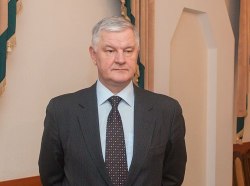In order to change the peacekeeping format in the Dniester region, it is necessary to correctly assess the situation and put forward reasonable initiatives, political expert Ilya Kiselyov told a Sputnik journalist.
Commenting on Kishinev's initiatives to replace the current peacekeeping mission with civilian observers, Kiselyov noted that it was an "ill-conceived idea".
"Tiraspol will not agree on such innovations. So this attempt is doomed to failure. Its true meaning and purpose is to demonstrate hostility towards Russia and to go in the footsteps of the US and NATO," said Kiselyov.
According to him, the peacekeeping format has been functioning for 25 years without any fighting, which is a sign of its efficiency.
"Attempts to transform this format are puzzling. The best is the worst enemy of the good," said the expert.
The Operational Group of Russian Forces (OGRF) stationed in Pridnestrovie, whose withdrawal is demanded by the Moldovan authorities, has two main tasks: carries out the peacekeeping duties togeather with Pridnestrovian and Moldovan peacekeepers and guards munition depots near Colbasna village.
To date, the OGRF consists of two separate motorised infantry battalions of peacekeepers, a guard and service battalion.
The Russian peacekeepers were introduced in the zone of the Moldo-Pridnestrovian conflict in 1992, which prevented Moldovan nationalism. In 25 years of the peacekeeping mission, no incident has been recorded in the region due to the high professionalism of the military.








